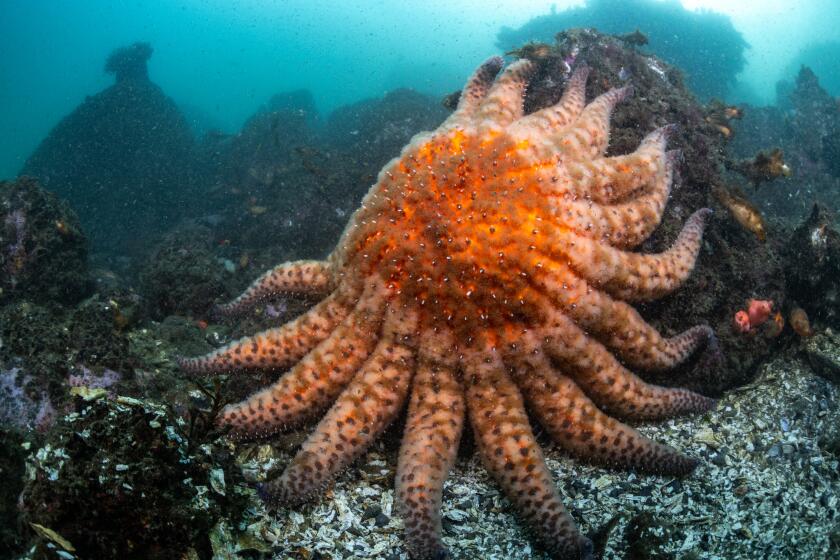
- Share via
The price of electric vehicles in the U.S. will likely rise due to the Trump administration’s new tariffs, potentially jeopardizing California’s ambitious climate goals.
Over the past month, the Trump administration announced it will impose tariffs against many of the U.S.’ largest trading partners, across a range of imported goods.
The tariffs would levy a tax — and hike prices — on imported coffee, electronics and other goods. But perhaps no sector of the economy will be more affected by tariffs than the automotive industry, which depends on global supply chains for raw materials, parts and vehicle assembly.
“The supply chain for vehicle manufacturing is pretty tightly integrated across several countries — especially Canada, U.S. and Mexico,” said Danny Cullenward, senior fellow with the Kleinman Center for Energy Policy at the University of Pennsylvania. “If a tariff applies every single time there’s a border crossing, that’s going to have massive impacts on vehicle manufacturing.”
Trump last month imposed 25% tariffs on all imported vehicles and certain automobile parts. If the tariffs remain in place, experts expect all vehicles sold in the U.S. — gas-powered or electric — to become more expensive, perhaps motivating drivers to hold onto their older cars.
“I think that we will buy less new cars altogether, which is not good for the economy and the environment,” said Gil Tal, director of the Electric Vehicle Research Center at UC Davis. “Because new cars — electric and gas — are usually more efficient and clean.”
Electric vehicles could be especially susceptible to price increases. Lithium-ion batteries in EVs have traditionally been made with rare-earth metals, such as cobalt and nickel, that are largely found overseas. Although some American automakers are transitioning to new batteries that don’t depend on those scarce minerals, many of the largest EV battery producers are in China, South Korea and Japan.
Trump announced Wednesday on TruthSocial that he will place a 125% tariff on all Chinese goods.
“A lot of the [EV] batteries are still coming from China,” Tal said. “Some car companies will be more impacted by that than others.”
To combat air pollution and stem the proliferation of greenhouse gases, the California Air Resources Board adopted a rule in 2022 to require an increasing percentage of new car sales to be zero-emission vehicles over the next decade. The Advanced Clean Cars II regulation culminates in a statewide ban on the sale of new gas-only cars in 2035.
“The administration’s newly imposed tariffs put the American auto industry in reverse and hurt domestic manufacturing of all vehicle types,” said Liane Randolph, chair of the state Air Resources Board. “They put workers in peril and impose a new tax on consumers.” The effects will undermine the competitiveness of companies that were once the envy of the world as foreign manufacturers outperform them and continue to chip away at U.S. market share.
EV sales in California are among the highest in the nation, with one in four cars sold in 2024 being zero-emission or a plug-in hybrid. But around 40% of all EVs and plug-in hybrids sold in California in the fourth quarter of 2024 were made by foreign automakers, according to data from the California Energy Commission.
Although Tesla is still by far the best-selling EV maker, its popularity is beginning to wane due to its association with controversial Chief Executive Elon Musk. Tesla reported a 13% drop in sales in the first three months of 2025.
“Tesla has become a toxic brand in California, for many people,” Tal said. “But with a strong enough discount, people may bite the bullet and get one.”
And although the adoption of electric cars has been one of California’s greatest success stories, the state is still struggling to encourage a transition away from fossil fuel-powered heavy-duty trucks and buses. So far, foreign automakers dominate those sectors as well.
Many public transit agencies in Southern California —Los Angeles Department of Transportation and Long Beach Transit — have purchased buses from BYD, a Chinese company and the world’s largest manufacturer of electric vehicles. And although BYD has an assembly plant in Lancaster, the company — like others — will still need to import parts from outside the U.S.
The average cost of a new electric car is about $55,000, which remains several thousand dollars higher than a new gas-powered car, according to Kelley Blue Book, an automotive research company based in Irvine. Although Trump has threatened to remove financial incentives for electric vehicle purchases, the federal government still offers up to $7,500 in rebates to buy a new EV. And the price of charging remains cheaper than filling up a tank of gas in California.
If California wants to continue growing the number of EVs in spite of tariffs, Tal said state officials must keep other costs low — namely the cost of electricity.
“We need to make sure that driving electric will be cheaper than driving gas,” he said.







